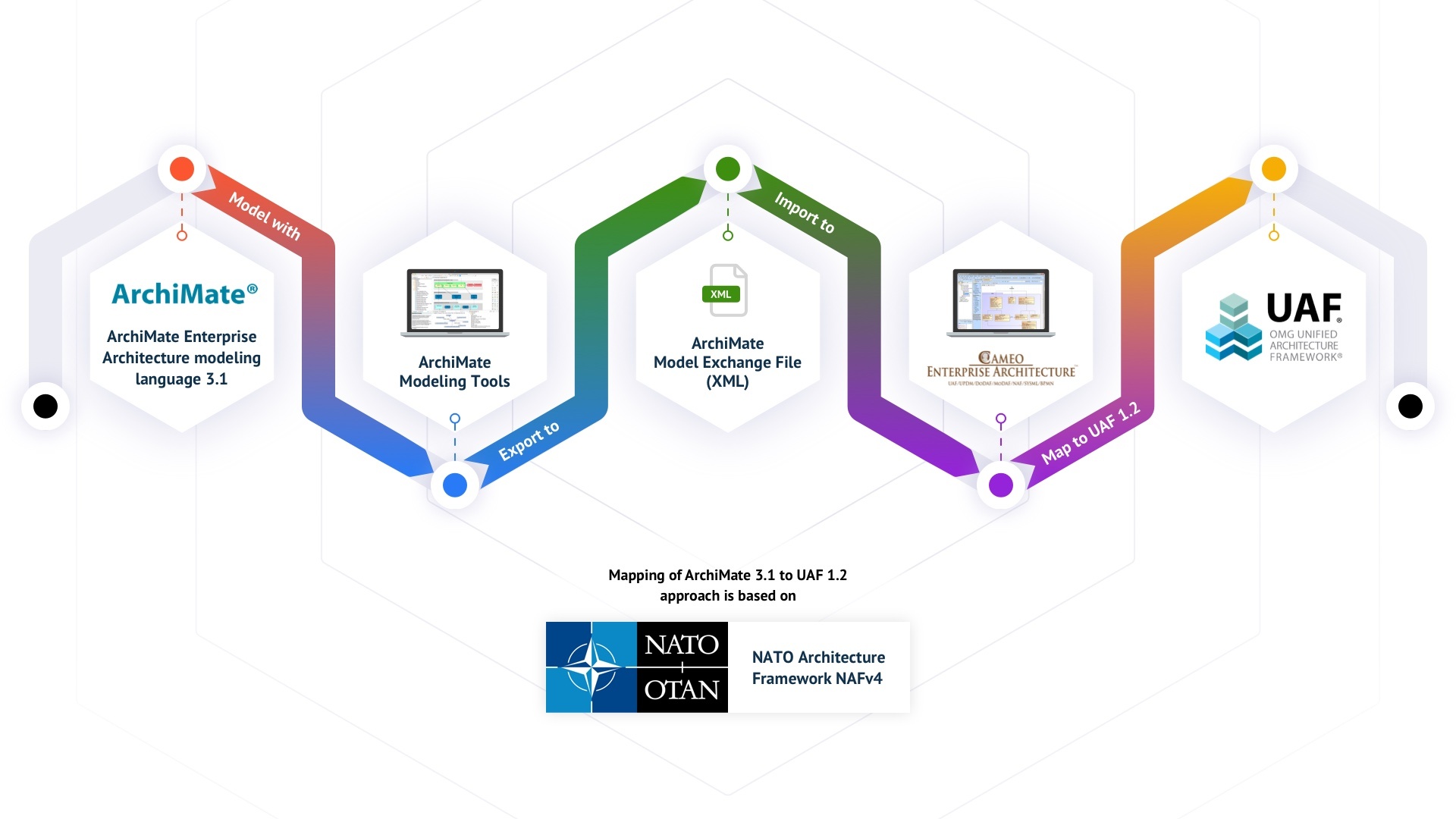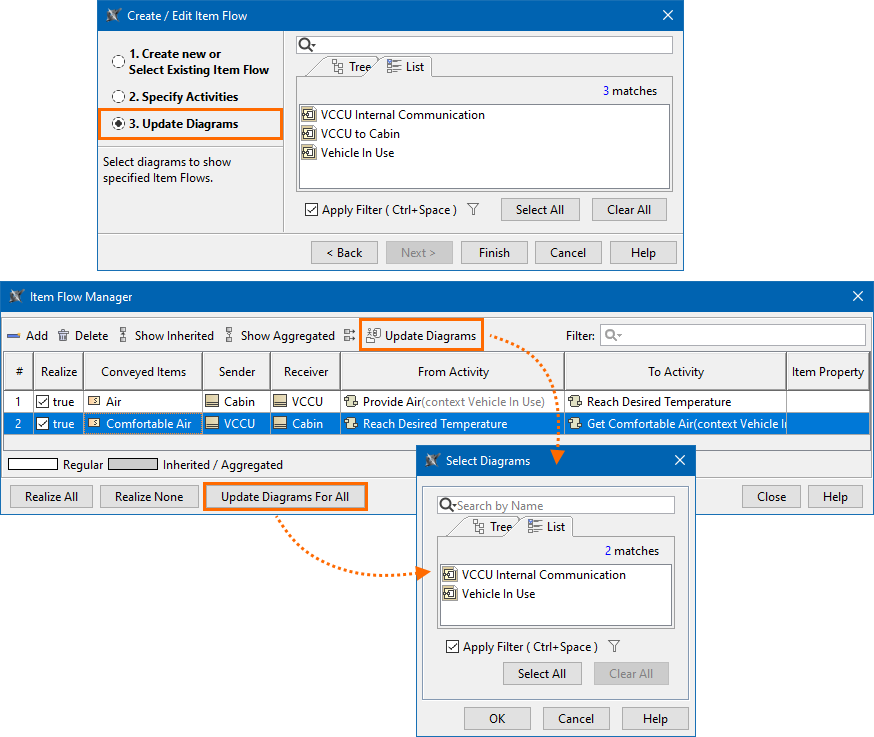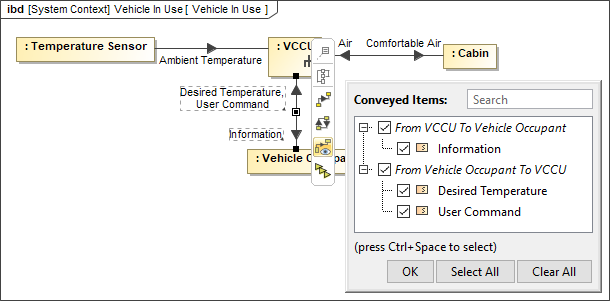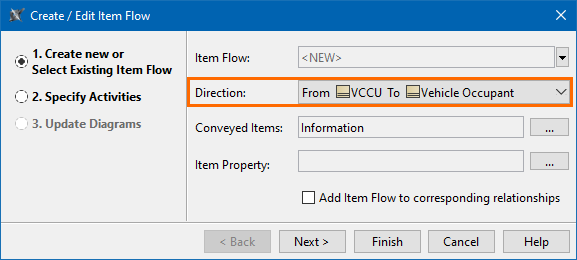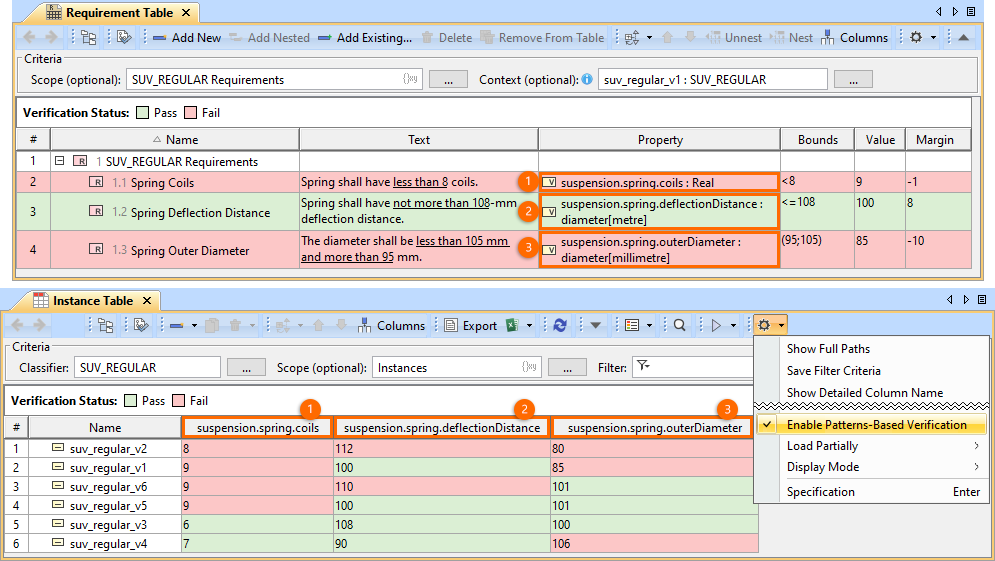Released: July 1, 2022
In the 2022x release, we implemented the UAF 1.2 standard changes making the UAF 1.2 Profile fully supported in UAF, UAF Enterprise Architect, DoDAF, DoDAF 2.0, MODAF, NAF, and NAF 4.0 frameworks. Therefore, UAF 1.1 is no longer supported. Moreover, we adapted the partial import of the ArchiMate model from the open exchange file into the UAF 1.2 project. Finally, new DISR and UJTL library versions are now available.
This version also introduces several Instantiation Wizard improvements that will allow you to customize Instance Specifications before creating them, e.g., define their names and apply custom stereotypes. In addition, the plugin now supports the upcoming SysML 1.7 specification and provides an easier way to perform requirement verification in Requirement Tables.
The 2022x release launches the Data Markings and Classification Plugin for working with classified or sensitive data. This plugin allows system and software engineers, enterprise architects, and others to mark model elements to indicate different levels of classification or sensitivity.
For general modeling, this release presents diagram banner creation, improvements to Structured Expressions, extended filtering by Legend items functionality, an easier and safer way to manage secure connections, pre-bundled plugins, Product Line Engineering Plugin, and Project Merge Plugin improvements.
Beginning with this version, Reader is introduced as a modeling tool mode.
Additionally, collaborative modeling has been further enhanced with production-ready Global Element Usage Search functionality, allowing you to effectively analyze element modification impact in decomposed, highly interlinked models.
To download the latest version, see Downloading installation files. For further information, check the product documentation.
UAF 1.2 Features
ArchiMate Import
The import of the ArchiMate model from the open exchange file into the UAF 1.2 project and the element mapping are now completed. The mapping of ArchiMate 3.1 to UAF 1.2 approach is based on the NATO Architecture Framework.
UAF Reports Publishing with Cameo Collaborator
In this version, the UAF Template for Cameo Collaborator was adapted for UAF 1.2.
Learn more about document publishing with Cameo Collaborator >>>
Other Enhancements
- The creation of the reception property for Operational, Resource, and Service signals is now available:
- From the Operation Performer, Resource Performer, Service, and their specializations Specification Window.
- From the element symbols' smart manipulator on the diagram pane.
- By dragging and dropping the reception property from the Containment tree on the element symbols on the diagram pane.
- New parametric diagrams are introduced:
- UAF 1.2: Strategic Parametric diagram. Learn more >>>
- NAF 4.0: C8 Planning Assumptions Parametric diagram. Learn more >>>
- Notifications were improved to show background action information in the following diagrams:
- Strategic Phasing diagram
- Strategic Actual Deployment diagram
- Strategic Typical Deployment diagram
SysML Features
Improved Item Flow Management Experience
SysML Plugin 2022x Refresh1 brings several improvements to Item Flow management, which include:
- Selecting diagrams to update flows. From now on, a new Item Flow realization does not end up with unexpected results in existing diagrams (previously, the flow may have been updated or not), as a simple diagram update control mechanism is introduced across the project. The Item Flow Manager dialog and the Create/Edit Item Flow wizard are now enriched with the ability for you to choose which diagrams with the realizing elements to update.
- A quick way to show/hide flowing items in a diagram. Display/hide the flowing items quickly using the dedicated action in the smart manipulator.
- Element type representation in the Item Flow Direction selection. Selecting the direction for the Item Flow in the Create/Edit Item Flow wizard is now easier as the icons indicating element types are displayed next to the element names, allowing you to identify the sender and receiver more easily.
- Auto-remove not realized Item Flows. You can now specify the newly introduced Remove Not Realized Item Flows SysML project option to automatically remove Item Flows after the last element that realizes them is deleted. Additionally, you can run the validation to check whether there are any Item Flows in the model that are not realized.
Learn more about Item Flow management >>
Requirements Verification in Instance Tables
In addition to performing requirements verification in Requirement tables, now you can also carry it out in Instance tables. While the verification in a Requirement table allows you to perform the analysis for a single instance set as the context, the verification in an Instance table allows you to perform the analysis for multiple instances at once via the Enable Patterns-Based Verification option. It allows you to analyze multiple instances conveniently and efficiently.
Performing the Requirements verification analysis in the Requirement table vs. the Instance table.
Learn more about requirements verification in Instance Tables >>
Other Improvements
- When you create an Action directly inside the Structured Activity Node, the Allocated To property is specified automatically according to the allocation mode.

